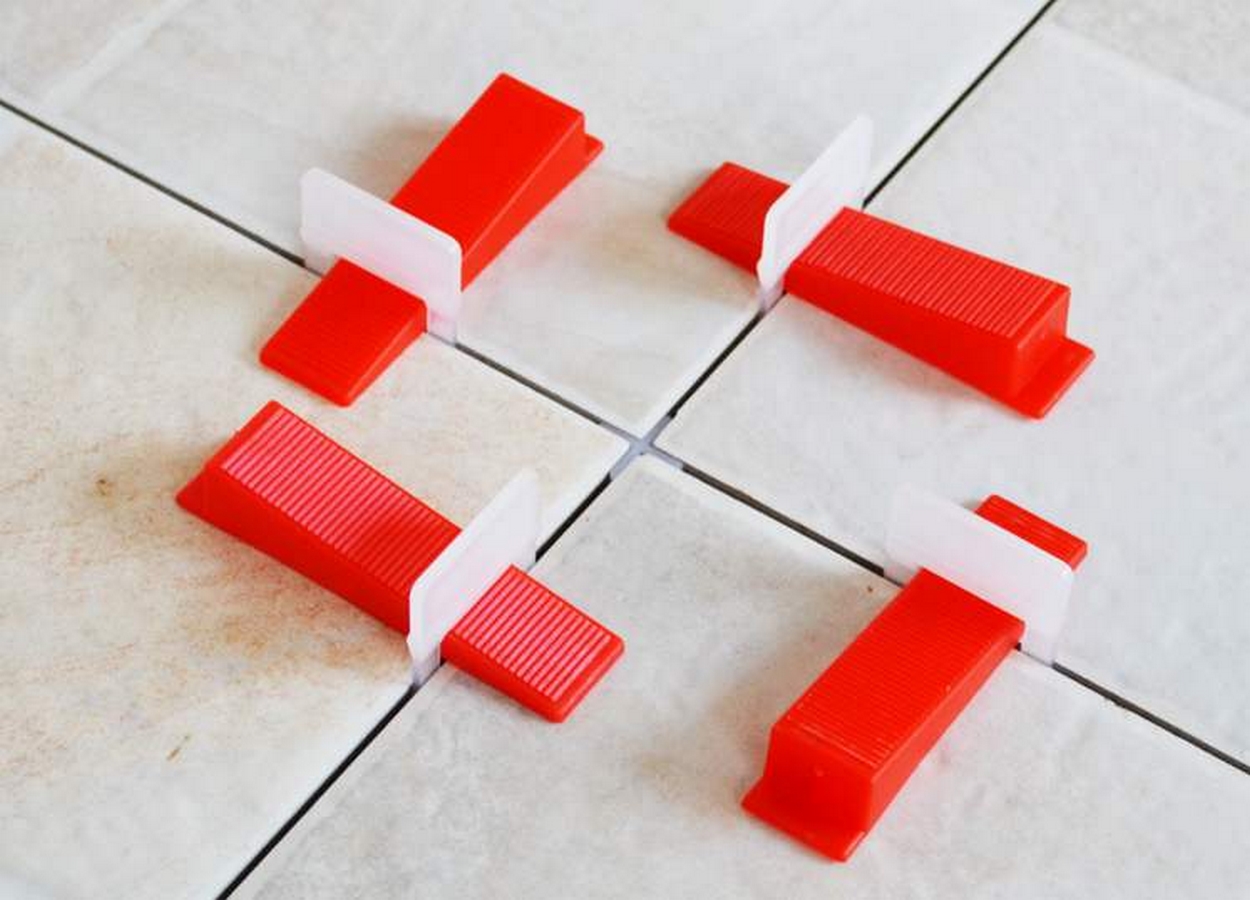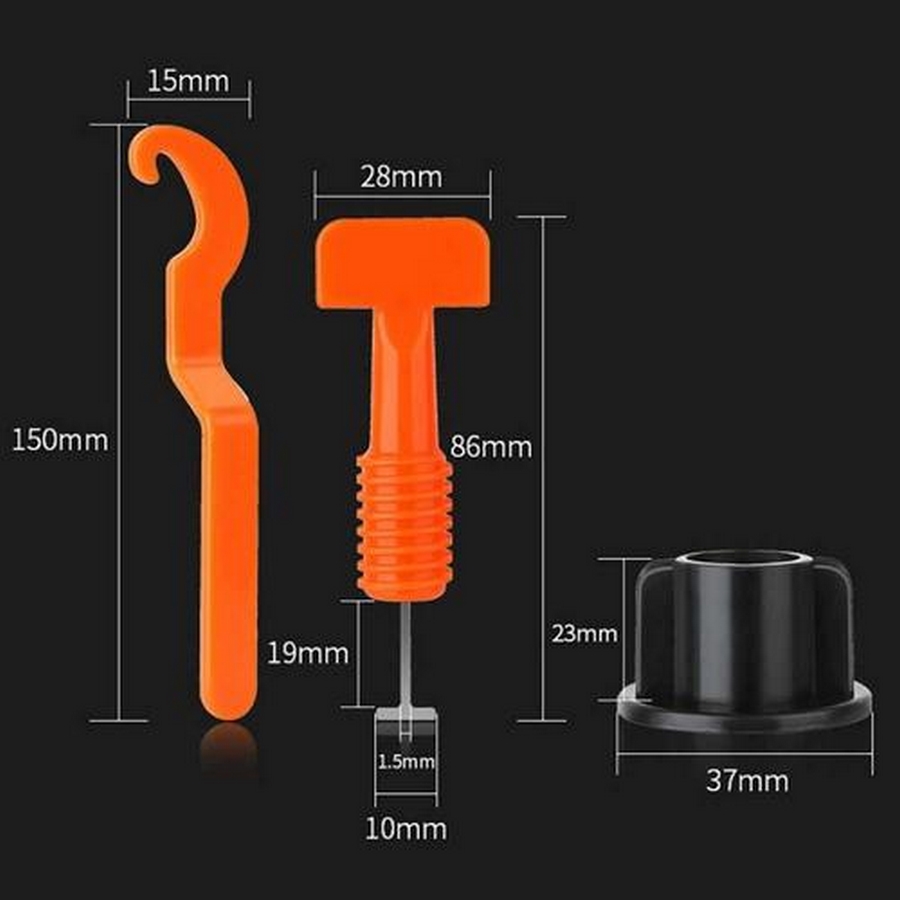Introduction
In this blog post, we will be discussing the benefits of tile leveling system China.
Tile leveling systems are used to get rid of uneven floors and can also help with preventing wear on carpets.
This is a great tool for anyone who has issues with their flooring or just wants to prevent future problems.
When you are working on the decoration of your new house, this tool is necessary for you.
We understand that as the industry grows, it's has been more difficult to find the product which is suit your condition when you face so many options.
That's why we wrote this blog for you.
In this blog, we will be discussing the benefits of tile leveling system China.
The following are some pros and cons associated with using these products. If you're interested in learning more about them, keep reading!
This bog will include the following topics:
- What is a tile leveling system China
- Why we need one tile leveling system
- Consideration before choosing a Tile Leveling System
- Suggestion about installation
- Where can you buy them

1. What is a tile leveling system China
This floor has a special type of tile, called a ceramic tile leveling system, which has a bottom smooth in order to remain in position without slipping.
Tile leveling systems are often used when laying tiles on walls or over cork floors. Tile leveling systems have been implemented in many houses for bathrooms and kitchens, because they require floors that can be easily cleaned with water .
Tile levelers China were used infrequently until the fiftieth century , since then there was marked technological improvements that made these materials more affordable and practical.
Tile levelers have also allowed for larger amenities in homes , since the system allows flat floors without empty spaces.
Tile leveling systems have come a long way from being very expensive and virtually unrepairable to today's modern tile levelers China, which are affordable and easy to replace.
2. Why we need one tile leveling system
One of the biggest problems in a basement is having to deal with uneven floors. This can cause a myriad of issues, from water leakage in the corners to the walls shifting over time and joint separation in between tiles.
Tile leveling system helps solve these issues by ensuring that all your tiles are lying perfectly flat on top of one another without any gaps or ridges. The result is a beautiful, finished floor that looks like it was installed when the house was built.
Tile leveling system comprises several elements: screws for attaching the floor joists to the beams, neoprene expansion joints and metal clips which attach the border tiles together so they sit flat on top of each other.
These metal clips are placed every 2 ft. by the installer when creating the tile layout on site. The base board is then attached to this, followed by the application of thin-set mortar and individual tiles.
When contractors install tile leveling systems in basements, it's best for homeowners not to use the screw method but instead opt for adhesive underlayment with bonding agent like thinset mortar.
Thinset holds tiles better than screws do because thinset has a higher holding strength per square inch than screws have - especially once you add water into the equation!
Tile leveling system can be used to treat a variety of installation issues.
For example, the tile leveling system ensures that tiles are not going to lift up because their adhesive was not strong enough or because the floor wasn't properly prepared for installation by using proper subflooring materials.

It also prevents tiles from sinking down because there is condensation under them which causes the grout to weaken and crack over time.
In addition, it prevents water damage caused by an uneven floor.
Tile leveling systems allow homeowners to refinish their basement floors without ever having to worry about the need for expensive repairs every few years due to joint separation between tiles and gaps in between individual tiles as well as ridges in between rows of tiles.
This same tile leveling system also ensures that your floor will stay level and secure, even if you or a family member has a wheelchair.
Tile leveling systems are the way to go for anyone who wants their basement floors to be durable, safe and look fantastic!
In addition, they increase the resale value of the home by allowing homeowners to make their basements presentable with no need for expensive repairs down the road.
3. Consideration before choosing a Tile Leveling System
When you plan a tile leveling system, there are several factors to consider that will determine what options your project offers.

Existing space or flooring system
The first step is to identify the space in which the tiles will sit and whether or not there is an existing flooring system.
If an existing surface exists, determining its type will help you determine what type of substrate is needed for installation. For instance, if an existing floor has a thin carpet pad over concrete, adhesive would be used to affix tile directly over the carpet padding onto a concrete slab.

If just a concrete slab exists with no underlying carpet padding, thinset mortar would be applied to both surfaces (concrete and the underside of the tile) before installing the tiles.
Tiling over a concrete slab without carpet padding is also referred to as a mud bed installation and does not require a substrate for the tile to adhere to, but it is important that you use a very flat trowel when spreading mortar.
If no existing floor exists but there is an adjoining surface such as joists or plywood underlayment with at least 1/8" thickness, you will need to install thin-set mortar over those surfaces. In this case, make sure you have created a cleanly swept work area free from dust and dirt so that your adhesive will properly adhere.
The type of tiles you will use
Another important factor is the type of tiles you will be using.
Groutable tiles are typically found in ceramic tile but can also be used in porcelain and natural stone materials.
Non-groutable tiles are generally made out of hard plastic or glass that are mechanically fastened together with adhesive or mortar, making them suitable for surface installation applications.
Deciding which type of tile you want to use depends on what your ultimate goal is in installing a tile floor. For instance, if you plan on entering the room in the future where the tile will reside in bare feet, it may be wise to choose groutable tiles. If you require a high degree of slip resistance, it may be best to choose non-groutable tiles for your tile leveling system.
Some homeowners will go a step further and use both groutable and non-groutable tiles in the same room so that they are able to have different types of flooring throughout their space depending on its application. For example, they might want the tile leveling system tiled with slip resistant non-grouted tiles for safety reasons while using grouted interlocking ceramic tiles in high traffic areas.

Need underlayment or not
The final factor is whether or not you will need underlayment such as plywood or cement board before installing the tile leveling system . If there is only a thin carpet pad over the cement slab, with no plywood or other underlayment, tiling directly onto the concrete with adhesive is an option.
If there are underlayments involved but they are not level, it may be best to place your tile leveling system on top of those surfaces instead of using them as a substrate for installation
4.Suggestion about installation
No matter what you choose, do your research before starting your project so that you have a better understanding of all equipment and materials needed for your tile leveling system .
If at any point throughout the process you encounter difficulties or issues, call a professional contractor to help save time and money.
It 's also important to note that some tile leveling systems rely on the use of a mortar adhesive. If you want to ensure that your installation is successful, it's best to check with your manufacturer or installer before purchasing any materials for this purpose.
If you're not up to working with heavy equipment such as oscillating multi-tools and electric drills but still want to have your own tile leveling system installed, consider hiring a pro.
For example, if the project involves installing underlayment over concrete surfaces before actually laying down tiles on top of it all, a contractor will be able to do this type of work safely and correctly , saving you time and money from having to do it yourself.
If you're a tile leveling system newbie, it's a good idea to get your hands dirty and give the installation process a try before hiring professionals.
It's important to understand how tile leveling systems work in general, but above all else you need to know what tools are needed for the task ahead of time so that you don't have to make an extra trip out to purchase anything.
5.Where can you buy them
Peygran
Peygran represents a group of family companies located in the industrial area of Ibior that develop and produce solutions for various sectors.
Ibior is known as an economic hub, home to many auxiliaries who specialize metal or plastic work; however they also have their own range products offering unique professional tools with best design which helps customers get through projects easier while achieving excellent outcomes at high quality materials used throughout all our creations!
Winsen Building material Co., Ltd
Foshan Winsen Building Material Co., Ltd is a company with 10,000 square meters and hundred employees that provides the best quality materials to its clients.
They have an aluminum extrusion line; Anodizing lines; powder coating spray & wooden grain production lines which all help them produce over 80000 pieces daily!
With innovative R&D concepts like "Deep Fabrication", refined management skills , strict high efficient fast global growing sales channels ; FOSHAN WINSEN BUILDING MATERIAL CO LTD guarantees good service for you as their customer .
Winsen can provide various products from L-shaped Aluminum Tile Edge Trim to PVC stone trim.
Conclusion
We hope you've found our blog post helpful and informative. If there is anything we missed, please let us know in the comments section below!
And if you're looking for a tile leveling system that will give your floors perfect installation without needing to be done by experts, consider purchasing one from China.
To make sure it's right for you before making any commitments, take into consideration what type of tiles are on your flooring (ceramic or porcelain), how many square meters your floor covers and where they need to go. All of these factors can help determine which leveler is best suited for your needs!
